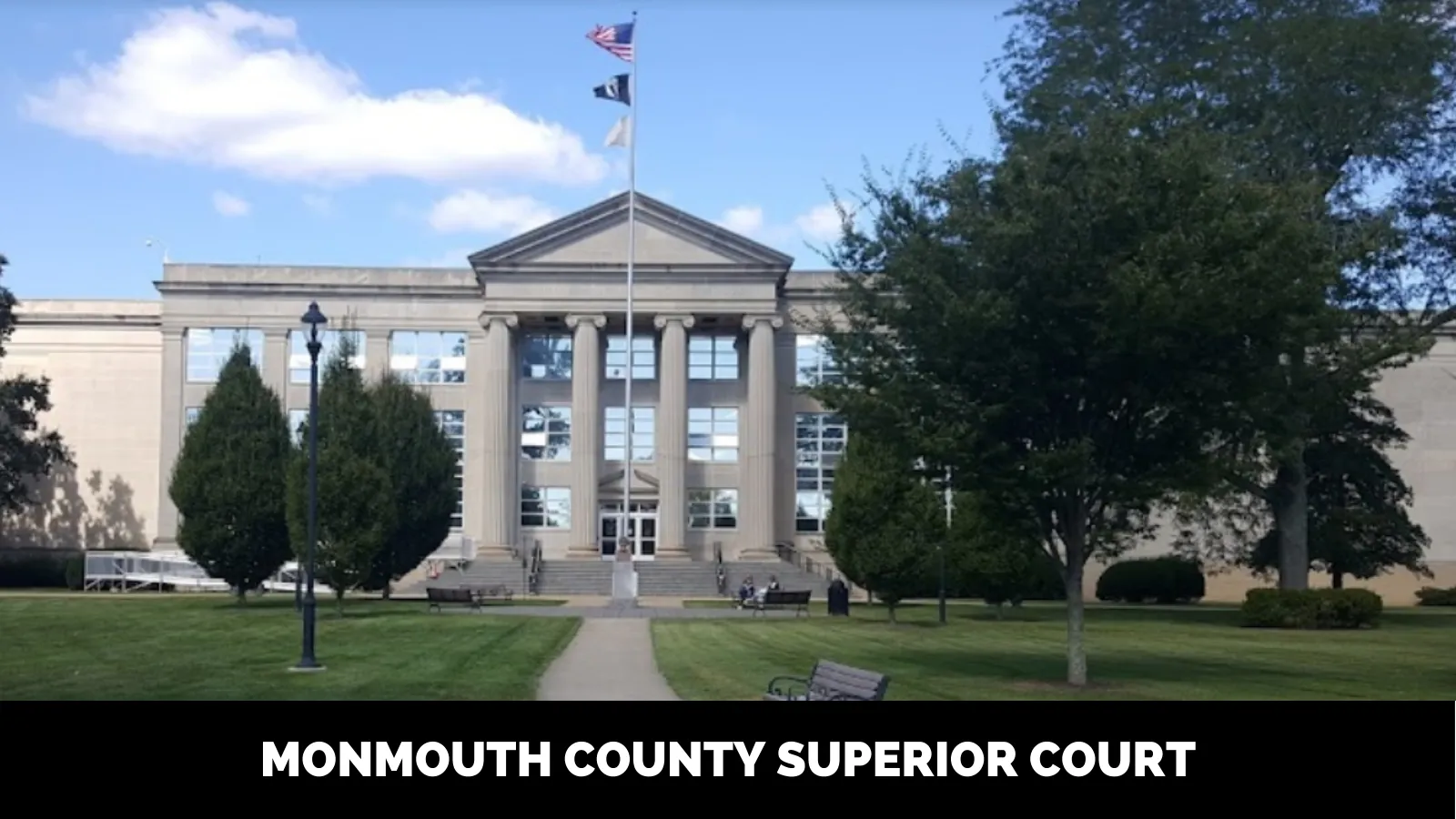Monmouth County Superior Court: What You Need to Know
Time
Working Hours:
Monday:
8:30 am–4:30 pm
Tuesday:
8:30 am–4:30 pm
Wednesday:
8:30 am–4:30 pm
Thursday:
8:30 am–4:30 pm
Friday:
8:30 am–4:30 pm
Saturday: closed
Sunday: closed
Connect with a Attorney
If you are a resident of Monmouth County, New Jersey, you may find yourself in need of legal services at some point in your life. The Monmouth County Superior Court is the primary court in the county and offers a range of services to residents. In this article, we will provide an overview of the Monmouth County Superior Court and what you need to know if you require its services.
What is the Monmouth County Superior Court?
The Monmouth County Superior Court is part of the New Jersey state court system and is the primary court in Monmouth County. It is a trial court of general jurisdiction, which means that it hears both criminal and civil cases. The court is located in Freehold, New Jersey and has a total of 33 judges.
Types of Cases Heard in the Monmouth County Superior Court
The Monmouth County Superior Court hears a wide range of cases, including:
Criminal Cases
The Monmouth County Superior Court hears all felony criminal cases and some misdemeanor cases that are referred to the court by municipal courts. Some examples of criminal cases heard in the court include:
- Drug offenses
- Homicide
- Sexual assault
- Robbery
Civil Cases
The Monmouth County Superior Court hears civil cases with a value of $15,000 or more. Some examples of civil cases heard in the court include:
- Personal injury
- Contract disputes
- Property disputes
- Employment disputes
Monmouth County Superior Court Departments
The Monmouth County Superior Court has several departments that handle different types of cases. These departments include:
Criminal Division
The Criminal Division handles all criminal cases in the court. This includes arraignments, plea bargains, trials, and sentencing.
Family Division
The Family Division handles cases related to family law, including:
- Divorce
- Child custody
- Child support
- Domestic violence
Civil Division
The Civil Division handles all civil cases in the court. This includes trials, motions, and other civil proceedings.
Probate Division
The Probate Division handles cases related to wills, estates, and guardianship.
How to File a Case in the Monmouth County Superior Court
If you need to file a case in the Monmouth County Superior Court, you will need to follow certain procedures. The process for filing a case will depend on the type of case you are filing. In general, you will need to:
- Complete the necessary forms: You will need to fill out the appropriate forms for your case. These forms are available on the New Jersey Courts website.
- File the forms: You will need to file the forms with the Monmouth County Superior Court. You will also need to pay any filing fees.
- Serve the other party: You will need to serve the other party with a copy of the forms you filed. This can be done by mail, hand delivery, or through a process server.
- Attend court: You will need to attend court on the scheduled date and time for your case.
Monmouth County Superior Court Location
The Monmouth County Superior Court is located in the Monmouth County Courthouse, which is situated at 71 Monument Street, Freehold, New Jersey. The courthouse is a large building that is easily recognizable and can be easily accessed by car or public transportation.
Monmouth County Courthouse Directory
If you are planning to visit the Monmouth County Courthouse, you may want to consult the courthouse directory. The directory contains information about the courthouse’s different offices, including the Family Division, Criminal Division, and other departments. The directory can help you find the office you need and provide you with directions to the courthouse.
Monmouth County Court Case Lookup
If you are looking for information about a case that is being heard in the Monmouth County Superior Court, you can use the court’s online case search tool. This tool allows you to search for cases by name, case number, and other criteria. You can also use the tool to view information about upcoming court dates and other important information related to your case.
Monmouth County Family Court Judges
The Monmouth County Family Court has several judges who are experienced in family law and are committed to helping families resolve their disputes in a fair and timely manner. These judges have extensive knowledge of the law and are respected members of the legal community in Monmouth County.
Conclusion
The Monmouth County Superior Court is an important resource for residents of Monmouth County, New Jersey. If you find yourself in need of legal services, it is important to understand the services offered by the court and how to file a case. By following the procedures outlined by the court, you can ensure that your case is handled properly and efficiently.
FAQs
What is the Monmouth County Superior Court?
The Monmouth County Superior Court is the primary court in Monmouth County, New Jersey. It is a trial court of general jurisdiction that hears both criminal and civil cases.
What types of cases are heard in the Monmouth County Superior Court?
The Monmouth County Superior Court hears a wide range of cases, including criminal cases such as drug offenses, homicide, sexual assault, and robbery, as well as civil cases such as personal injury, contract disputes, property disputes, and employment disputes.
Where is the Monmouth County Superior Court located?
The Monmouth County Superior Court is located in Freehold, New Jersey.
How many judges are in the Monmouth County Superior Court?
The Monmouth County Superior Court has a total of 33 judges.
How do I file a case in the Monmouth County Superior Court?
To file a case in the Monmouth County Superior Court, you will need to complete the necessary forms, file the forms with the court, serve the other party, and attend court on the scheduled date and time for your case.






